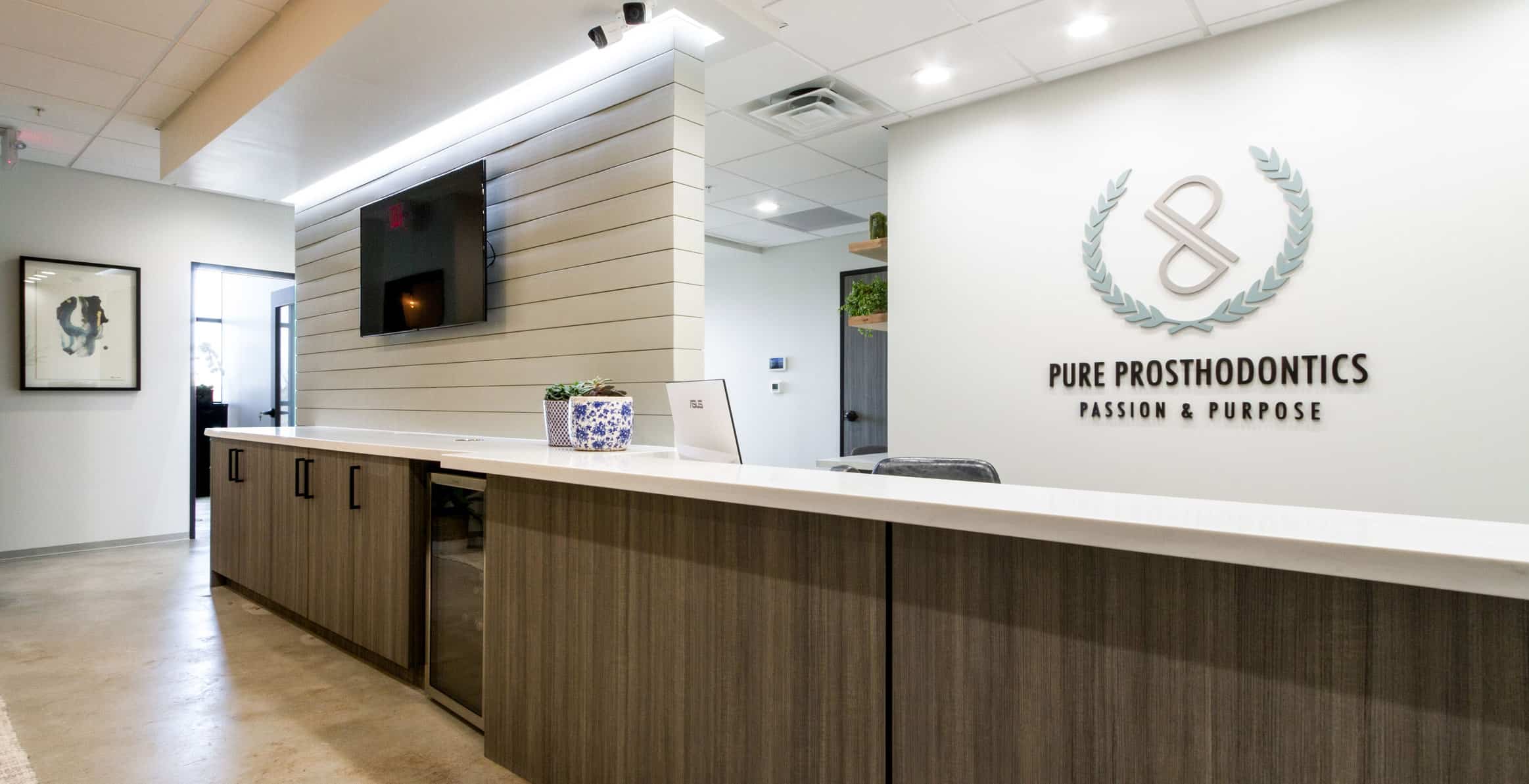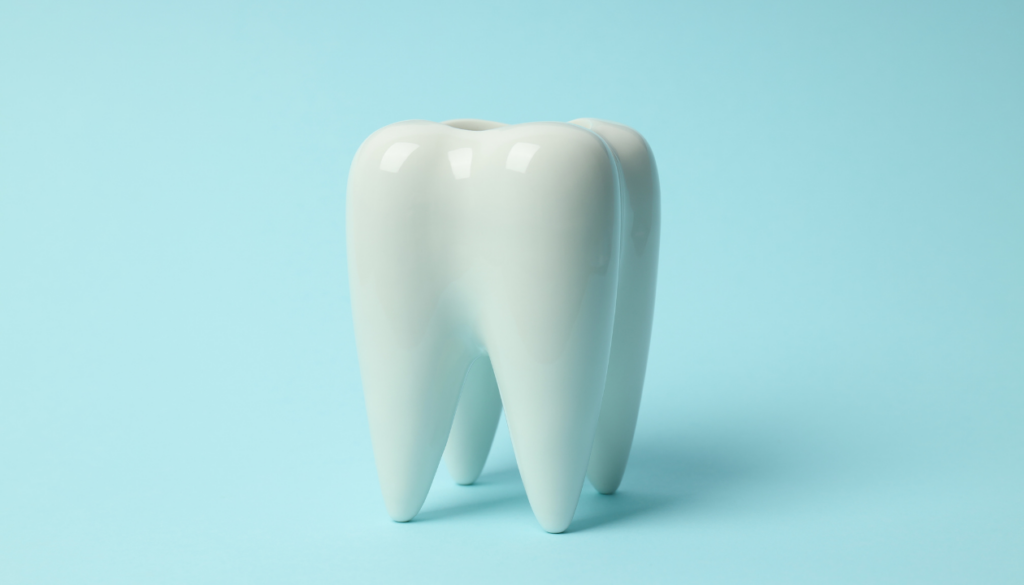If you’ve ever experienced a damaged or decayed tooth, you might’ve heard the term “dental crown.” This common dental restoration is designed to protect and restore the function of your tooth, ensuring your smile stays healthy and vibrant.
But what exactly is a dental crown, and how does it work?
In simple terms, a dental crown acts like a cap that covers the entire tooth, providing strength and support. Whether you’re dealing with a cracked tooth or need to hold a dental bridge in place, crowns play a vital role in modern dentistry.
Understanding their purpose and benefits can help you make informed decisions about your oral health.
What Is a Dental Crown?
A dental crown is a tooth-shaped cap designed to cover and restore a damaged or weakened tooth. It’s custom-made to fit over an existing tooth, enhancing its shape, size, strength, and appearance.
Crowns serve various functions, including protecting your tooth from further damage and improving aesthetic appeal. Crowns can be made from multiple materials, each offering distinct advantages:
- Ceramic: This material closely resembles natural teeth, making it an excellent choice for front teeth where aesthetics matter most.
- Metal: Gold, silver, and other alloys like palladium, nickel, and chromium provide exceptional durability. These are commonly used for back teeth due to their strength.
- Porcelain Fused to Metal: This option combines metal’s strength with porcelain’s aesthetic appeal, yielding a reliable and attractive solution.
- Resin: While more affordable, resin crowns are less durable and may wear out faster than other materials.
- Stainless Steel: Prefabricated stainless steel crowns serve as temporary measures or are often used for children’s teeth, offering quick and effective protection.
Choosing the right dental crown depends on factors like the specific tooth’s location and your desired aesthetic outcome. Dental professionals assess your individual needs to recommend the most suitable option.
When Would You Need a Dental Crown?
You may need a dental crown to address specific dental issues or to enhance oral health. Crowns serve various purposes in dental restoration and protection.
Common Indications
- Severe Decay: When a tooth experiences extensive decay that cannot be repaired with a filling, a crown offers a protective solution.
- Cracked or Fractured Teeth: If your tooth is cracked or fractured, a crown strengthens and stabilizes the affected area.
- Root Canal Treatment: After a root canal, a crown restores the tooth’s structure, protecting it from further damage.
- Dental Bridges: Crowns secure dental bridges in place, ensuring stability in cases where teeth are missing.
- Aesthetic Improvements: When you desire a more pleasing appearance of a tooth, a crown can enhance its shape and color.
Types of Dental Crowns
Different types of dental crowns cater to various needs based on aesthetics, durability, and cost. Understanding the distinct types helps you make informed decisions regarding your dental restoration.
Metal Crowns
- Material: Metal crowns consist of alloys such as gold, palladium, nickel, or chromium.
- Benefits: Metal crowns excel in durability, effectively withstanding heavy biting and chewing forces, and require minimal removal of your tooth structure. Their strength makes them suitable for molars and back teeth.
- Considerations: Metal crowns feature a metallic color, limiting their appeal for front teeth. Some individuals may also experience allergic reactions to certain metals.
Porcelain-Fused-to-Metal Crowns
- Material: Porcelain-fused-to-metal crowns combine a metal base with a porcelain exterior.
- Benefits: These crowns offer both strength from the metal base and aesthetics from the porcelain surface, making them versatile for both front and back teeth.
- Considerations: While they provide an attractive appearance, the porcelain can chip over time, and the metal underneath might show if gum recession occurs.
All-Ceramic Crowns
- Material: All-ceramic crowns consist entirely of ceramic material.
- Benefits: All-ceramic crowns provide excellent aesthetics due to their natural appearance. They suit front teeth, as they mimic the translucency of natural enamel.
- Considerations: While aesthetically pleasing, all-ceramic crowns may lack some durability compared to metal options, making them less ideal for heavy chewing areas.
Resin Crowns
- Material: Resin crowns are made from composite resin materials.
- Benefits: Cost-effective and easy to shape, resin crowns require less dental work during placement. They are often used for temporary solutions.
- Considerations: Despite their affordability, resin crowns do not offer the same durability as metal or ceramic crowns and are prone to chipping and wear.
Same-day Crowns
- Process: Same-day dental crowns utilize advanced CAD/CAM technology for quick production.
- Benefits: This option allows for immediate restoration, reducing the time spent in dental appointments and eliminating the need for temporary crowns.
- Considerations: While convenient, same-day crowns might sometimes compromise on aesthetic and functional aspects compared to crowns made in dental labs.
The Dental Crown Procedure
The dental crown procedure involves several steps to ensure a successful restoration. You’ll typically start with an initial consultation, followed by preparation and placement stages.
Initial Consultation
During the initial consultation, your dentist assesses your dental health and discusses the reasons for needing a crown. You’ll review the different types of crowns available, which include porcelain, zirconia, gold alloy, and porcelain-metal combinations.
This meeting allows your dentist to determine the best crown option based on your specific needs, considering factors like tooth condition and aesthetic preferences.
Preparation and Placement
In the preparation phase, your dentist numbs the affected area to minimize discomfort. They then reshape the tooth to accommodate the crown, removing any decay or damage.
If there’s significant loss of tooth structure, your dentist may place a temporary buildup. After reshaping, they take impressions of your teeth, which help create a custom crown.
Once the crown is ready, your dentist places it on the prepared tooth, checking for proper fit and bite. Adjustments may occur to ensure comfort. Finally, the crown is permanently cemented in place, restoring your tooth’s strength and appearance.
Caring for Your Dental Crown
Caring for your dental crown ensures its longevity and maintains overall oral health. Follow these guidelines for optimal care:
- Maintain Oral Hygiene: Brush your teeth twice a day with fluoride toothpaste. Floss daily, paying special attention to the area around the crown to prevent plaque buildup.
- Avoid Hard Foods: Steer clear of hard or sticky foods that can crack or dislodge the crown. Foods like ice, hard candies, or chewing gum may damage the restoration.
- Limit Staining Foods and Drinks: Reduce consumption of coffee, tea, red wine, and other staining beverages. These can discolor the crown material, affecting aesthetics.
- Schedule Regular Dental Checkups: Visit your dentist every six months for professional cleanings and examinations. Routine checkups help identify any issues early, preserving the crown’s integrity.
- Address Any Issues Promptly: If you experience discomfort, sensitivity, or loosening of the crown, contact your dentist immediately. Prompt attention can prevent further complications and ensure your crown remains secure.
Implementing these care strategies helps extend the life of your dental crown while supporting your overall oral health.
Benefits and Risks of Dental Crowns
Benefits of Dental Crowns
- Restoration: Dental crowns restore the structure and function of damaged or decayed teeth. They enhance chewing ability and improve overall oral function.
- Aesthetics: Crowns significantly improve the appearance of teeth. They can match the color and shape of natural teeth, enhancing your smile.
- Durability: Dental crowns provide long-lasting solutions. Depending on the material, crowns can last 5 to 15 years, making them a dependable option for tooth restoration.
- Protection: Crowns protect weakened teeth from further damage. They cover cracked or fractured teeth, preventing more serious dental issues.
- Versatility: Dental crowns serve multiple purposes. They can secure dental bridges or act as anchors for dental implants, making them versatile in treatment plans.
Risks of Dental Crowns
- Sensitivity: You may experience tooth sensitivity following crown placement. Adjustments often resolve sensitivity, but discomfort can occur when consuming hot or cold foods.
- Failure: Crowns may fail due to various factors. Issues like poor oral hygiene, excessive force from grinding teeth, or crown wear can lead to detachment or fractures.
- Allergic Reactions: Allergic reactions to crown materials, such as metal or resin, can occur, though they are rare. Always discuss material choices with your dentist if allergies are a concern.
- Cost: Dental crowns can be expensive. Costs vary based on material and geographic location, and some insurance plans may not cover all expenses.
- Procedure Discomfort: The dental crown procedure involves preparation of the tooth, which may cause temporary discomfort. Local anesthetics mitigate pain, but sensitivity may last for days.
Understanding these benefits and risks allows you to make informed decisions about dental crowns, ensuring the choice aligns with your dental needs and lifestyle.
Conclusion
Dental crowns play a vital role in restoring your oral health and enhancing your smile. Whether you’re dealing with decay or seeking cosmetic improvements a crown can provide the support and protection your teeth need.
With various materials available you can choose the option that best fits your lifestyle and aesthetic preferences.
Caring for your crowns is essential to ensure their longevity and effectiveness. By maintaining good oral hygiene and keeping up with dental checkups you can enjoy the benefits of your crowns for years to come.
If you’re considering a dental crown consult with your dentist to discuss the best solution tailored to your unique needs.
Frequently Asked Questions
What are dental crowns used for?
Dental crowns are tooth-shaped caps used to cover damaged or decayed teeth. They provide strength, support, and improve the tooth’s appearance. Crowns are often recommended for severe decay, cracked teeth, after root canal treatment, or to secure dental bridges.
What materials are used for dental crowns?
Dental crowns can be made from various materials, including ceramic, metal, porcelain fused to metal, resin, and stainless steel. Each material has unique benefits, such as aesthetics, durability, and strength, making them suitable for different dental needs.
How do I know if I need a dental crown?
You may need a dental crown if you have significant tooth decay, a cracked tooth, have undergone a root canal, need to secure a dental bridge, or desire to enhance your smile. A dentist can provide a proper evaluation.
How long does it take to get a dental crown?
The time required for getting a dental crown typically involves two visits. The first visit includes consultation and tooth preparation, while the second visit involves placing the crown. Same-day crowns may be available, taking only a few hours.
Are dental crowns noticeable?
Dental crowns can be made to match the color and shape of your natural teeth, making them blend seamlessly. Ceramic and porcelain crowns, in particular, are designed for front teeth and provide excellent aesthetics, ensuring they are not noticeable.
How should I care for my dental crown?
To extend the life of your dental crown, maintain good oral hygiene by brushing and flossing regularly. Avoid hard or sticky foods that may damage the crown, and schedule regular check-ups with your dentist for ongoing assessments.
What are the risks associated with dental crowns?
Potential risks of dental crowns include tooth sensitivity, possible crown failure due to poor care, allergic reactions to materials, and temporary discomfort during placement. Understanding these risks helps in making informed dental decisions.
Can I get a dental crown for a cracked tooth?
Yes, dental crowns are commonly used for cracked teeth. They help restore the tooth’s structure and prevent further damage, providing support and protection against additional fractures. A dentist can assess if a crown is the right option for you.
Pure Prosthodontics: Protect Your Smile with High-Quality Dental Crowns
At Pure Prosthodontics, we offer durable and aesthetically pleasing dental crowns to restore and protect your teeth. Our team provides expert care to ensure your dental crown fits perfectly and lasts for years.
Contact us today to schedule a consultation and discover how a dental crown can enhance your smile’s strength and beauty. Act now to preserve your dental health and confidence!



